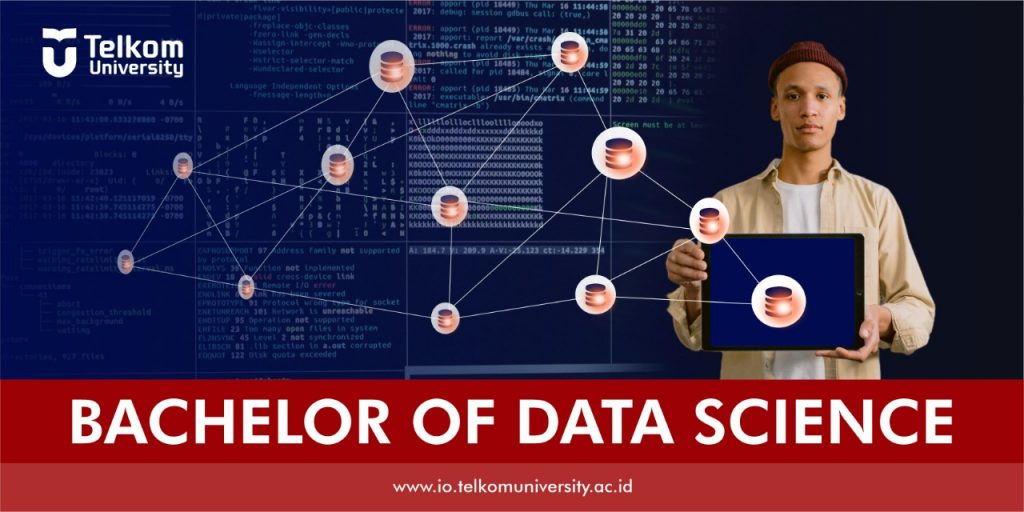
One of the biggest challenges in the big data era is how to gain insights and utilize large volumes of data with a wide variety of data types in various industry domains such as digital business, finance, marketing, telecommunications and social media. In addition, currently the need for Data Scientists is very high in various industries.
Under the Data Science Study Program, students will be well prepared to face major challenges in today’s society: how to utilize the information contained in the vast amount of data collected in various fields/domains such as digital business, finance, environment, and social media. The Bachelor of Data Science Study Program is based on an interdisciplinary background so as to be competent in the field of data science.
Why Choose a Bachelor of Data Science?
The Bachelor Degree of Data Science Study Program prepares students well to face major challenges in society, can provide knowledge and understanding related to Data Science science and practical experience, which can be used to solve problems and provide solutions related to Data Science. The Data Science study program curriculum has been designed according to industry needs, focusing on Big Data Analytics.
Graduate Profile

Data Science Academician
Become a teacher, or researcher in various higher education institutions and research institutions in the scientific area of Data Science, especially Big Data Analytics.

Data Science Professional
Data Scientist, Data Analyst, Data Science Architect, Data Engineer, Business Analyst, Data Science Technology Professionals, Database and Network Professional.

Technopreneur
As an owner/founder/CEO of a startup company that has a concentration in the field of Information technology, especially companies that are closely related to data.
Vision
To become a world-class Data Science undergraduate study program in 2028 in organizing education and research in the field of Big Data Analytics, and building entrepreneurship to improve the nation’s competitiveness and fulfillment of sustainable national development goals.
Mission
Purpose
For more information: HERE

